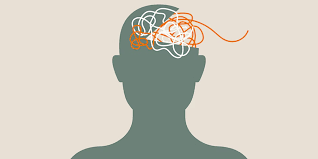Fostering Healthy Relationships with ADHD and Social Skills
Overview
- Condition: New
Description
People with Attention Deficit Hyperactivity Disorder (ADHD) experience difficulties in many aspects of their lives, including social relations. ADHD-related issues may make it more difficult for a person to build and maintain meaningful relationships. However, with the correct assistance, comprehension, and focused interventions, people with ADHD can acquire excellent social skills and enduring relationships. This article will look at how social skills and ADHD are related, as well as strategies for encouraging constructive relationships.
Understanding the Impact of ADHD on Social Skills:
ADHD is characterized by impulsivity, hyperactivity, and inattention. These symptoms affect social relationships significantly and are often associated with challenges at work and in the school. It may be challenging for people with ADHD to regulate their emotions, focus in class, and recognize social cues. These difficulties could lead to misunderstandings, arguments, and loneliness.
One of the biggest problems that persons with ADHD have in social situations is inattention. They could find it difficult to maintain their attention during conversations, missing social signs and finding it difficult to follow the flow of the discussion. In addition to disrupting others and making rude statements out of the blue, impulsivity can also lead to relationship problems and an unbalanced flow of discourse.
Hyperactivity is a primary sign of ADHD that can also impair social skills. In social situations, people may find it difficult to remain motionless or silent, which others may find bothersome or impolite. Moreover, hyperactivity might make it difficult to concentrate or maintain patience during prolonged tasks, like paying close attention in class or taking part in group activities.
The Impact of ADHD on Relationships:
Relationships, both romantic and platonic, can be greatly impacted by the challenges presented by ADHD. Relationship difficulty, miscommunication, and failure to communicate are common experiences for people with ADHD. Partners, friends, and family may experience relationship strain and unhappiness as a result of their inability to understand the root causes of these issues.
Maintaining friendships can be particularly challenging for those who suffer from ADHD. They could find it difficult to stay in contact, overlook crucial occasions or appointments, or struggle to plan social events. These challenges can exacerbate social anxiety and feelings of loneliness by causing feelings of guilt, humiliation, and inadequacy.
Difficulties associated with ADHD can manifest in a number of ways in romantic relationships. Hyperactivity and impulsivity can result in risky or rash judgments, which strains relationships and creates conflict. Furthermore, it can be difficult to prioritize a partner’s needs and feelings when one is distracted, which can result in sentiments of resentment or neglect.
Building Healthful Connections:
Even though ADHD can make social connections difficult, there are methods and approaches that people can use to foster positive relationships:
Understanding and Awareness:
Developing empathy and understanding in interpersonal relationships requires education about ADHD for both the individual and others. Through education about the signs, difficulties, and symptoms of ADHD, people can create effective support systems for one another.
Reducing misunderstandings and fostering collaboration in the search for answers can be achieved by open discussion regarding ADHD-related challenges and how they affect social interactions.
Growing in Self-Awareness
It can be advantageous for people with ADHD to become more conscious of their symptoms and how they affect their social relationships. Acknowledging the behavioral patterns linked to ADHD might assist people in anticipating difficulties and proactively implementing coping mechanisms.
Meditation and journaling are two mindfulness exercises that can assist people with ADHD become more aware of their thoughts, feelings, and behaviors, which will improve their ability to interact with others.
Developing Interaction Skills:
Building strong relationships requires effective communication. Active listening techniques, keeping eye contact, and seeking clarification when necessary are helpful for those with ADHD.
Calendars and to-do lists are examples of visual aids that can assist people with ADHD stay organized and remember crucial dates and obligations, which lowers the risk of forgetting or skipping appointments.
Establishing Limits:
Maintaining mutual respect and understanding in partnerships requires setting clear limits. In order to avoid overload and burnout, people with ADHD may require assistance in establishing and upholding boundaries.
Open communication about one’s needs, restrictions, and preferences with friends, family, and partners can help avoid misunderstandings and relationship problems.
Looking for Expert Assistance:
Individuals with ADHD and those close to them can benefit greatly from the assistance and direction that mental health specialists, such as therapists or counselors, can offer when navigating relationship obstacles.
For those with ADHD, cognitive-behavioral therapy (CBT) and social skills training can be very helpful in enhancing their problem-solving, emotion-regulation, and communication abilities.
In summary:
It can be extremely difficult to establish and maintain good relationships when dealing with ADHD. However, people with ADHD can develop strong social skills and lasting connections with the right support, understanding, and targeted interventions. People with ADHD can overcome challenges and flourish in their relationships by learning more about themselves and others, becoming more self-aware, improving their communication skills, setting boundaries, and getting professional help when necessary. People with ADHD can create meaningful connections that enrich their lives if they have patience, empathy, and a collaborative attitude.








Leave feedback about this
You must be logged in to post a review.